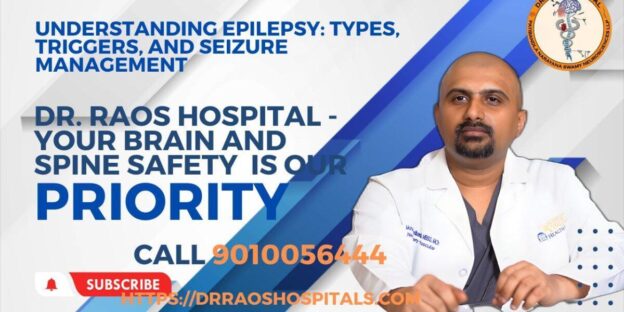Expert Insights: FAQs on Seizures Explained by Dr. Rao
1. What is a seizure?
- A seizure is a sudden, uncontrolled electrical disturbance in the brain that can cause various symptoms, including altered consciousness, convulsions, and unusual sensations.
2. What causes seizures?
- Seizures can result from various factors, including epilepsy, head injuries, brain tumors, infections, and certain medical conditions.
3. What is epilepsy?
- Epilepsy is a chronic neurological disorder characterized by recurrent seizures. There are many potential causes, including genetic predisposition.
4. Can seizures be fatal?
- While most seizures are not life-threatening, some can lead to complications. It’s essential to manage seizures properly to reduce associated risks.
5. What are the different types of seizures?
- Seizures are categorized into various types, such as focal (partial) seizures, generalized seizures, and absence seizures, each with distinct characteristics.
6. What is the first aid for a person having a seizure?
- During a seizure, it’s crucial to keep the person safe by preventing injury, easing them to the ground if possible, and placing them in a recovery position.
7. Can you swallow your tongue during a seizure?
- No, it’s a common misconception. While the tongue may move during a seizure, it’s not possible to swallow it.
8. Can stress trigger seizures?
- Stress can be a seizure trigger for some individuals, particularly those with epilepsy. Stress management can be beneficial in such cases.
9. What tests diagnose epilepsy?
- Diagnosing epilepsy typically involves an evaluation of the patient’s medical history, an electroencephalogram (EEG), and imaging tests like MRI or CT scans.
10. Can seizures be prevented?
- While not all seizures can be prevented, individuals with epilepsy may reduce their seizure frequency through medication, lifestyle changes, and stress management.
11. Are there any natural remedies for seizures?
- Some people explore complementary therapies like yoga, relaxation techniques, and dietary changes to manage seizures, but these should be discussed with a healthcare professional.
12. Is epilepsy genetic?
- Epilepsy can have a genetic component, but it can also result from various non-genetic factors.
13. Can seizures cause brain damage?
- Prolonged or severe seizures can potentially cause brain damage, emphasizing the importance of prompt and effective treatment.
14. Can you drive if you have epilepsy?
- Driving regulations vary by location, but people with epilepsy may need to meet specific criteria and have their condition well controlled to drive legally; in most states, it is around six months of probation from the last seizure.
15. What is the ketogenic diet for epilepsy?
- The ketogenic diet is a high-fat, low-carbohydrate diet that can help some individuals with epilepsy manage their condition.
16. Can seizures be a one-time occurrence?
- Yes, a single seizure does not necessarily indicate epilepsy. It could result from a specific cause, such as a fever or head injury.
17. What is a seizure aura?
- A seizure aura is a warning sign or sensation that some people experience before a seizure occurs. It can vary widely between individuals.
18. Can alcohol trigger seizures?
- Alcohol can lower seizure thresholds in some individuals, making them more susceptible to seizures. It’s advisable to drink in moderation or avoid alcohol if it’s a known trigger.
19. How long does a typical seizure last?
- The duration of a seizure can vary, but most seizures last for a few seconds to a few minutes.
20. Can seizures happen in sleep?
- Yes, seizures can occur during sleep, known as nocturnal seizures.
21. Can women with epilepsy have children?
- With proper medical guidance, many women with epilepsy can safely become pregnant and have children. Medication adjustments may be necessary.
22. What is the role of surgery in treating epilepsy?
- In some cases, surgery may be an option to remove or disconnect the area of the brain responsible for recurrent seizures.
23. What is the status epilepticus?
- Status epilepticus is a medical emergency characterized by prolonged, continuous seizures. Immediate medical attention is required.
24. Can seizures be controlled with medication?
- Many people with epilepsy can achieve seizure control with appropriate antiepileptic medications prescribed by a neurologist.
25. Can seizures be cured?
- While epilepsy is often a chronic condition, some individuals may outgrow it, and others can achieve long-term remission with treatment.
Dr. Rao and Dr. Rao’s Hospital:
Dr. Rao, an experienced and renowned neurosurgeon, along with Dr. Rao’s Hospital, is dedicated to providing comprehensive care for individuals with neurological conditions, including epilepsy and seizures. Their commitment to cutting-edge treatment and patient well-being is reflected in their efforts to improve the quality of life for those with neurological disorders.


